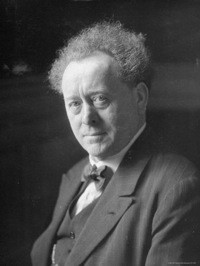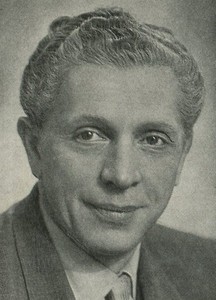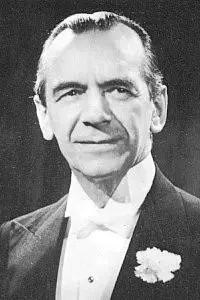
Willem Mengelberg (Mengelberg, Willem) |
Mengelberg, Willem

Dutch conductor of German origin. Willem Mengelberg can be called the founder of the Dutch school of conducting, as well as orchestral performance. For exactly half a century, his name was closely associated with the Concertgebouw Orchestra in Amsterdam, the group headed by him from 1895 to 1945. It was Mengelberg who turned this collective (founded in 1888) into one of the best orchestras in the world.
Mengelberg came to the Concertgebouw orchestra, already having some experience as a conductor. After graduating from the Cologne Conservatory in piano and conducting, he began his career as a musical director in Lucerne (1891 – 1894). During his years there, he drew attention to himself by performing several small oratorios, which are rarely included in the program even by venerable conductors. The courage and talent of the young conductor were rewarded: he received a very honorable offer to take the post of head of the Concertgebouw orchestra. He was only twenty-four at the time.
From the very first steps, the talent of the artist began to flourish. The success of the orchestra from year to year became stronger and stronger. In addition, Mengelberg began to make independent tours, the range of which became wider and soon covered almost the entire world. Already in 1905, he conducted for the first time in America, where later – from 1921 to 1930 – he toured annually with great success, performing with the National Philharmonic Orchestra in New York for several months in a row. In 1910, he made his first appearance at the La Scala, replacing Arturo Toscanini. In those same years, he performed in Rome, Berlin, Vienna, St. Petersburg, Moscow … From 1907 to 1920 he was also the permanent conductor of the Museum Concerts in Frankfurt and, in addition, in various years led the Royal Philharmonic Orchestra in London.
From then until his death, Mengelberg was rightfully considered one of the best conductors of his time. The highest achievements of the artist were associated with the interpretation of the works of composers of the late XIX – early XX century: Tchaikovsky, Brahms, Richard Strauss, who dedicated his “Life of a Hero” to him, and especially Mahler. Numerous recordings made by Mengelberg back in the thirties have preserved for us the art of this conductor. With all their technical imperfection, they give an idea of what huge impressive power, indomitable temperament, scale and depth his performance was invariably marked by. Mengelberg’s individuality, for all its originality, was devoid of national limitations – the music of different peoples was transmitted to them with rare truthfulness, a true understanding of character and spirit. One can be convinced of this by getting acquainted, in particular, with a series of records recently released by Philips under the title “Historical Recordings of V. Mengelberg”. It includes recordings of all Beethoven’s symphonies, the First Symphony and the German Requiem by Brahms, the last two symphonies and the music for Schubert’s Rosamund, four of Mozart’s symphonies, the Franck symphony and Strauss’s Don Giovanni. These recordings also testify that the best features for which the Concertgebouw Orchestra is now famous – the fullness and warmth of the sound, the strength of the wind instruments and the expression of the strings – were also developed in Mengelberg’s time.
L. Grigoriev, J. Platek





